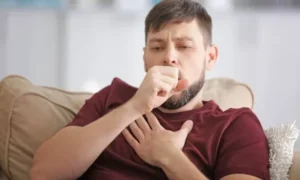The intersection of a chronic lung disease and COVID-19 can understandably be concerning. As a respiratory physiotherapy and pulmonary rehab expert, I’m here to provide insights and guidance on a crucial question: If you have a chronic lung disease and contract COVID-19, is there a chance your lungs are affected more severely? Let’s dive into this important topic.
Understanding the Risk:
First and foremost, it’s essential to acknowledge that individuals with underlying chronic lung conditions, such as Chronic Obstructive Pulmonary Disease (COPD), asthma, or interstitial lung disease, may indeed face a higher risk of experiencing more severe COVID-19 symptoms. This heightened risk is primarily due to the following factors:
Weakened Lung Function: Chronic lung diseases often result in reduced lung function. This means your lungs may have less reserve capacity to cope with the additional stress that COVID-19 places on the respiratory system.
Compromised Immune Response: These conditions can weaken your immune system’s ability to fight off infections effectively, including COVID-19.
The Severity Spectrum:
It’s important to recognize that the impact of COVID-19 on your lungs can vary significantly. Factors influencing the severity of the illness include:
Type and Severity of Your Chronic Lung Disease: The specific type of lung condition you have and its stage can influence how your body responds to COVID-19.
Age and Overall Health: Your age and general health status play a critical role. Older adults and those with underlying health issues are at a higher risk of severe illness.
Vaccination Status: If you’re fully vaccinated against COVID-19, your risk of severe illness is generally lower, and you may experience milder symptoms.
Practical Steps to Protect Your Lungs:
Here are essential steps to consider if you have a chronic lung disease and are concerned about COVID-19:
- Monitor Symptoms: Pay close attention to your symptoms. If you experience worsening shortness of breath, chest pain, high fever, or a significant drop in oxygen saturation levels, seek immediate medical attention.
- Follow Your Treatment Plan: Continue adhering to your prescribed treatment plan for your chronic lung disease. Medications, inhalers, and pulmonary rehabilitation exercises can help manage your condition and potentially mitigate the impact of COVID-19 on your lungs.
- Stay Hydrated: Adequate hydration is crucial. It can help thin mucus in your airways, making it easier to clear and reducing the risk of lung complications.
- Rest and Recover: Ensure you get enough sleep and avoid overexertion, which can strain your lungs.
- Vaccination: If you haven’t already, strongly consider getting vaccinated against COVID-19. Vaccination can reduce the severity of the illness and the risk of complications, especially for individuals with underlying health conditions.
Consult Your Healthcare Provider: Maintain open communication with your healthcare provider, such as a pulmonologist or respiratory therapist. They can provide specific guidance based on your condition and help you manage any changes in your lung health.
In conclusion, while there is an increased risk of severe COVID-19 in individuals with chronic lung disease, many successfully recover from the virus. Early detection, vigilant monitoring, and prompt medical intervention when necessary are crucial. Your healthcare provider is your best ally in navigating these challenging times, providing you with personalized guidance and support. Together, we can face this challenge and protect your lung health




